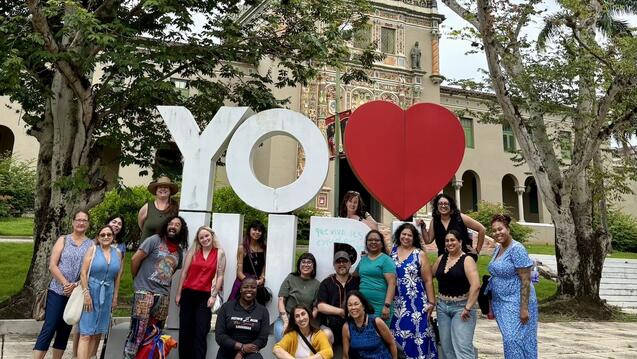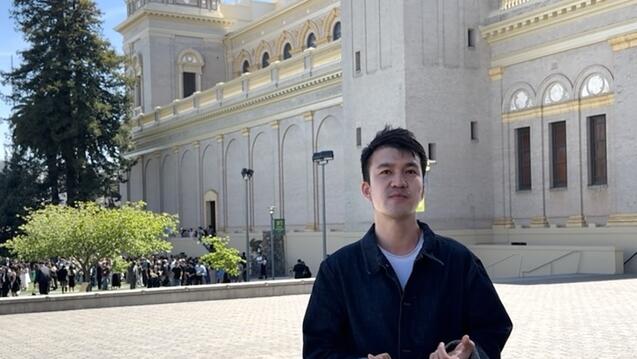Will Crypto Currency Be as Big as the Internet?
Last week, the University of San Francisco’s (USF) School of Management kicked off the Business and Finance Speaker Series with Olaf Carlson-Wee, Head of Risk at Coinbase.
Carlson-Wee’s talk aimed to demystify the world of crypto currency. He also shared his thoughts on how today’s entrepreneurs can best take advantage of business opportunities in the Bitcoin space.
Carlson-Wee was introduced by Associate Professor Ludwig Chincarini who thanked the Dean and Associate Dean of USF’s School of Management for making these invaluable talks from industry experts possible.
While Carlson-Wee admitted that Bitcoin is "excruciatingly difficult to wrap your mind around,” he believes that once you begin to understand the concept you see that “it is one of the most important ideas, at least in my lifetime.” He emphasized that people shouldn’t be afraid of using Bitcoin. “No one understands how credit cards work and they still work, right?” Carlson-Wee said.
Carlson-Wee implored the audience to not get caught in the trap of comparing Bitcoin to credit cards, fiat currencies like the dollar or any existing technologies, “because any serious technological breakthrough cannot be compared to the existing world,” he said. “In fact, despite its current main use for payments, Bitcoin’s greatest impact will go far beyond improving the efficiency of existing systems. When the Internet was first invented, nobody knew how significant its influence on the world would be and how it would change all of our lives. Similarly, we don’t know what Bitcoin is going to mean in the future but we are sure its impact is going to be profound.”
Carlson-Wee began by telling the story of how he became involved with Bitcoin, which started with his fascination with crypto currency. He went on to write his undergraduate thesis on the societal effects of distributed encrypted networks and eventually wired his meager savings to Japan where he purchased Bitcoin. After graduation, Carlson-Wee bid his time waiting for a company that he believed was set up to tackle the complicated issues that had plagued crypto currency industry until he found Coinbase, becoming their 33rd client and one of their first five employees.
Carlson-Wee said that despite the large amount of press Bitcoin has received, Bitcoin is still a nascent industry and “it is important to step back and really think about where Bitcoin is going. Look at the trend; don’t look at the past and see what Bitcoin has done because you can never really find opportunity after it happened, we need to be looking into the future rather than the past.” To emphasize its “future potential” Olaf pointed that while Bitcoin is not a mainstream technology and won’t be replacing the dollar any time soon, venture capitalists have invested over $600 million dollars in what is only a $5 billion dollar industry.
While Bitcoin is difficult to understand, it is actually an open source code with block chains (transactions) that can be looked at, added to or audited by thousands of security researchers around the world, creating a “beautiful simplicity” that is far more transparent than existing monetary institutions like the Federal Reserve. It also provides universal access, especially when compared to the difficulty of opening a bank account to make and receive payments, the huge infrastructural costs of launching a credit card company, or even the necessity of founding your own country to create a new currency. Since anyone can create a new block chain, thousands of currencies can be created, too many for Carlson-Wee to possibly keep track of, to the tune of possibly one new currency a day, “which is an amazing pace of innovation,” Carlson-Wee said. In fact, much of Bitcoin’s potential stems from its ability to make peer-to-peer (P2P) transactions, cutting out the middleman and any transaction fees or the need for a bank account.
Carlson-Wee said the Bitcoin space is like the Internet: you don’t have to understand the minutiae of how it works to use it or innovate. He urged the event attendants to view the unknown nature of crypto currency space as a similar ocean of opportunities for future entrepreneurs, to keep an open mind, and to bank on the future.


